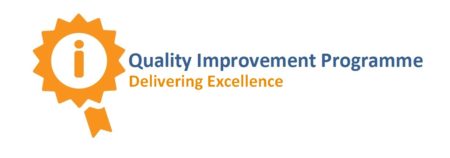
Everyone, no matter where they work, has the opportunity to make changes for the better of our patients.
In September 2018, the Trust’s very first in-house quality improvement programme (QIP) began. This has been designed following the successful delivery of a Health Education England (HEE) funded programme at the beginning of the year. The programme has been really successful and has seen staff from across the Trust gain skills in improvement tools and techniques they can use.
The programme has already seen lots of exciting quality improvement projects underway which will have an impact on patient care, as well as delivering financial savings.
As the programme is linked to the 2021 strategy, its purpose is to provide staff with practical tools to enable them to make improvements in their own areas. They gain tools and techniques and develop skills to enable them to do this with ease.
Want to find out more or join the next cohort? There are limited places and it will be on a first come first served basis. If you would like more information, please email [email protected]
Some examples of the great work that has been achieved as part of the programme are below:
Successes of the Quality Improvement Programme
Nigel Brasier – volunteer
The creation of a ‘happy to help’ permanent meet and greet stand at main reception at Pilgrim hospital, Boston was launched on Friday 22 March. The long-term goal is to recruit more volunteers so it can be manned every day.
Ruth Birkinshaw – Bereavement services
Standardising the bereavement service across all Trust sites has enabled them to include ICU departments to enhance the care provided to patients and their relatives in those areas. There are also plans for the same in our emergency departments, which has been a long-term goal for the department.
Daniel Thompson – Team Lead Neuro-Rehab Physiotherapist
The QIP tracheostomy project is now incorporated into a much bigger tracheostomy project on Ashby ward at Lincoln County Hospital. A monthly tracheostomy working group has been set up. On Tuesday 19 March Daniel presented the QIP poster he produced at the end of the programme at a regional event in Derby hosted by the Director of Allied Health Professions for NHS England, Suzanne Rastrick.
Debbie Harries – Clinical Scientist
Debbie is writing an article for the British Medical Journal’s ‘Quality Improvement Report’ on another project she is working on, thanks to her involvement on the QIP course.
Leanne Cox – legal services
Leanne has reduced photocopying, the amount of shredding, use of storage space and amount of paper ordering by working towards creating a paperless department. As a result of her work, there was a reduction on an average of three bags of shredding per week to less than one per month. The department were previously ordering 50 boxes of paper each month, this has now reduced to an average of 10 boxes per month.
Steph Dockerty – 2021 programme hub
An improved system for booking hotel accommodation, train travel and flights via Click Travel was successfully implemented in May 2018. This means staff no longer pay up front for travel and accommodations costs within the line of their work.
Reverend Pamela Beattie – chaplaincy services
Pamela introduced the use of comfort bags on hospital wards for children who are dealing with bereavement. She then received a Swan End of Life Award for end of life palliative care for her innovation.
Lauren Mullis – cardiac services
Lauren looked at creating clean and safe bed spaces to promote cleanliness and safety for staff and patients. She developed a leaflet to give out to inpatients and implemented a ‘one bag’ policy. The ward appears to be less cluttered and patients and staff are happier with the environment.
Diane Smith – outpatients
Diane looked at patients spending minimal time in the department, how safe they are feeling and how well they are being looked after. She has implemented hourly rounding following an initial pilot with a template developed for outpatients. This is now carried out on a daily basis in the department.
